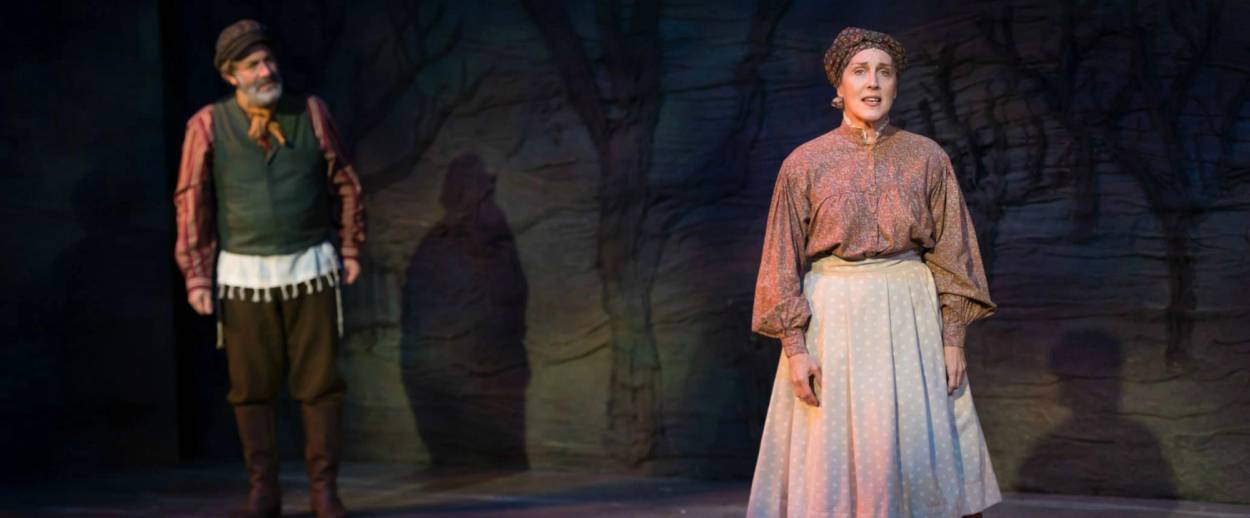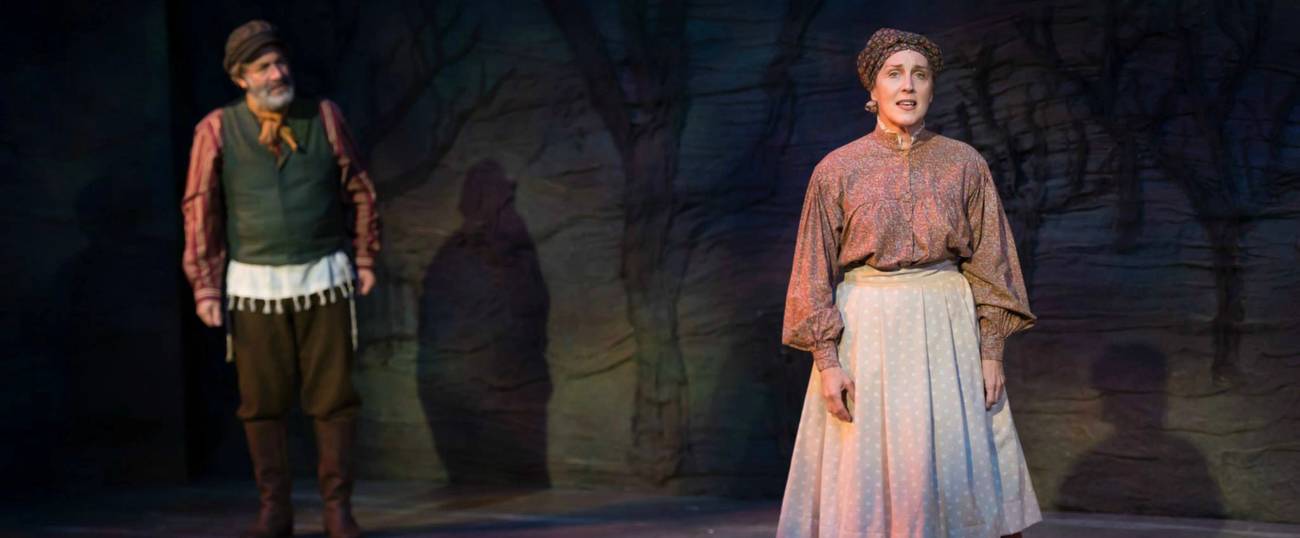Here’s to You, Jewish Moms of Musical Theater
The Jewish moms—including Golde from ‘Fiddler’ and Trina from ‘Falsettos’—who deserve our reverence. Also, call your mother already.




This Sunday is Mothers’ Day (call your mom), and, of course, Jewish mamas deserve special commendation for soldiering on despite generations of awful stereotypes turning their dedication and care into hysteria in popular media. But what about musical theater specifically? How are Jewish moms portrayed in that spotlight?
At first glance, Jewish mothers in musicals are sort of like mothers in Disney—frequently absent or dead. Look at Ragtime or even Joseph and the Amazing Technicolor Dreamcoat. Plus, Jewish women featured onstage often manage to avoid being mothers. Take the protagonist of Milk & Honey, a middle-aged widow romancing a widower (who is a Jewish father), and the show still makes it a point that she has no children. Egad!
Is this a conspiracy, an unfortunate side effect of too many Jewish men with Freudian issues writing musical theater (Stephen Sondheim, for one, notoriously hated his own mother)? Maybe, but there are at least four Jewish musical mothers deserving of our respect as we near Mother’s Day.
Golde from Fiddler on the Roof
Obviously, first, how could you possibly put together a list of Jewish mothers in any medium without Golde from Fiddler on the Roof? She’s strong, she’s grounded, and even when she’s misguided, everything she does is in the interest of helping her family survive. If anything, she’s underrepresented in the musical.
Think of it this way: Everything Tevye goes through, from his daughters entering nontraditional marriages to being expelled from his home, Golde experiences, too. Where’s her soliloquy while the rest of the cast freezes in place? For all she expresses, she keeps so much inside, and it would be great to one day hear her side of the story.
Also, shout-out to Tzeitel, who becomes a Jewish mother by the musical’s end.
Trina from Falsettos
Poor Trina. In Falsettos, her husband leaves her for a man, their son is precocious and troubled, and to top it all off, she starts developing feelings for her ex’s psychiatrist. She’s a modern woman, with very modern problems. Though her family is secular, she embodies an adaptability that’s not all that different from Golde’s. “I was sure growing up I would live the life/My mother assumed I’d live,” she sings, as she recognizes that she has a new normal, which she can also make her own. The song’s title? If Golde had a number of her own, it could also be called “Holding to the Ground.”
(Full disclosure: Trina’s other breakout song is called “I’m Breaking Down.”)
Rose Stopnick Gellman from Caroline, or Change
Rose Stopnick Gellman is another representative for mothers in blended families; she’s a stepmother trying to adjust to her new family, and her new, unfamiliar setting (she’s left New York for Louisiana). Caroline, Or Change is a semi-autobiographical work by Tony Kushner, and Rose’s stepson, Noah, is his analogue. Rose and Noah have a contentious relationship, and while she tries to fill her new role as parent, it doesn’t come easy. Plus, she’s wrestling with guilt over the implications that her family employees a black maid, despite her working-class, socialist upbringing. Now that’s a Jewish problem.
Minnie Marx from Minnie’s Boys
Mama Rose from Gypsy is simply not Jewish. Being a pushy stage mother and fitting into negative stereotypes doesn’t change history; Rose Hovick was a real-life gentile.
Minnie Marx, however, was a bona fide Member of the Tribe who also, like Mama Rose was manager to her children and helped launch them into stardom (that’s right, the Marx brothers!). Besides, Minnie deserves a spot on this list for the reason alone that this Jewish mama actually gets her name in the title of the gosh-darned show: 1970’s Minnie’s Boys is about the family’s rise to fame.
Minnie is the quintessential Jewish mother: Self-reliant, often exasperated (like Golde, she has five kids of the same gender), but with a consistent undercurrent of real love and devotion for her children. She’s not above laying on some Jewish guilt, but she’s not shrewish or nagging (eat your heart out, Sophie Portnoy).
While the musical was more or less a flop, the one breakout song was “Mama, a Rainbow” sung in the musical by Harpo (yes, Harpo sings). It’s a sweet anthem for mamas everywhere.
So this one goes out to you, Minnie, Rose, Golde, Tzeitel, Trina, Rebecca Herhkovitz in Rags, Gutele Rothschild from The Rothschilds, and more! This Sunday, to all the Jewish mothers, fictional or real, out there:
Gabriela Geselowitz is a writer and the former editor of Jewcy.com.